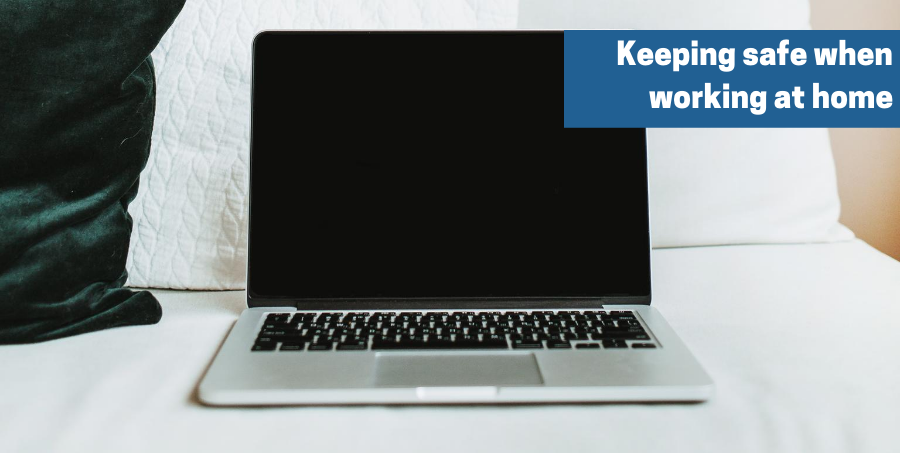Keep your hardware and household safe while working from home

With vast numbers of people now working exclusively from home in the wake of the COVID-19 pandemic, it's all too easy to disregard something that's firmly in place in the workplace. A 'something' that protects us from injury and even death. If you haven't already guessed what we're referring to, we'll spell it out: health and safety policy and procedures, which are mandatory for the workplace. But what happens when you're at home while getting through the work you'd typically undertake in a safety - and health-protected workplace? Here are some suggestions for keeping your hardware and your household safe while you're working from home.
The British Health and Safety Executive (HSE) requires employees, by law, to ensure they exercise the same health and safety responsibilities for home workers as for any worker at the workplace itself.
That aside, your home computer usage is likely to be substantially higher than usual, especially if there are others in the family (spouses and children) who need to use the internet. That all adds up to a very sound reason to be vigilant about electrical safety, so that you don't damage your devices, or worse, cause a fire resulting from overheating. You can use guidance from the HSE to keep your hardware and your home safe while working from home.
Here are some essential tips to keep you all safe:
Never charge electrical devices (laptops and smartphones included) on beds or sofas. This poses a significant fire hazard, as these devices can overheat during charging and start a fire when resting on combustible surfaces. They should only be charged on hard, flat, non-flammable surfaces which afford space for cooling air to circulate.
Don't risk "socket overload" by overusing extension leads. Well-manufactured extension leads (like the range we supply at EuroNetwork) are a great convenience when you have limited wall sockets. But simply because your extension lead allows you to plug four or more devices at once into it doesn't mean you should. The extension lead's current (measured in Amps) and power (measured in Watts) ratings are critical: most have a rating of 13 Amps (13A), but some have a rating as low as 10A (you'll usually find the ratings on the underside of the extension lead). If the number of appliances you wish to plug in exceeds the rating, it is possible to cause the wall socket to overheat and could even start a fire.
As a quick guide, a laptop, a smartphone charger and a desktop PC monitor will typically use less than 0.5 A each, while a desktop computer will usually use 3 A. Wattages (power usages) differ more markedly. A laptop uses between 65 and 100 Watts, a smartphone charger less than 12W, a computer monitor around 100W, while a desktop PC will frequently use at least 700W.
NEVER "daisy chain" extension leads. Plugging an extension lead into another extension lead to get the extra length to reach your device is, frankly, asking for trouble. Move your device closer to the wall socket and use a single extension lead only if necessary.
Use extension leads in preference to block adaptors, as this places less strain on the mains power socket on the wall.
Position cables wisely to avoid trip hazards. If the cable you're using can be routed close to the walls of the room you're using, so much the better. If you have to traverse a passageway with a cable, place it beneath a robust rubber protection strip. And bear in mind that taut, over-stretched wires are considerably more of a trip hazard than looser arrangements.

